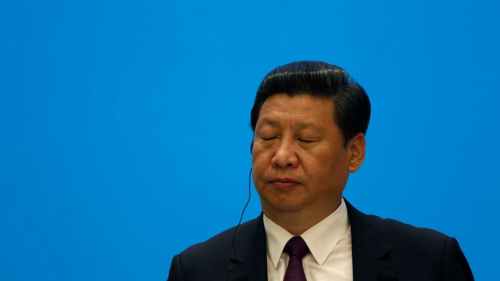In recent years, under the leadership of Xi Jinping, the Chinese Communist Party has vigorously pursued policies of state advancement and private retreat, leading to a loss of confidence among private enterprises and increasingly unfair market competition. This series of policies has had profound negative effects on the Chinese economy and society, damaging not only the initiative and creativity of entrepreneurs but also weakening market vitality and competitiveness.
1. State advancement and private retreat have significantly exacerbated the phenomenon of unfair market competition. The government's support for state-owned enterprises has gradually strengthened, creating favorable conditions for them through various means such as preferential loans and skewed allocation of land resources. Meanwhile, for private enterprises, barriers have been erected, including higher market entry thresholds and increased difficulty in financing. This overtly biased policy not only violates the fundamental principles of market competition but also places private enterprises at a disadvantage, making market unfairness evident.
2. The policy of state advancement and private retreat has severely undermined the confidence of private enterprises. Under the constant pressure of policies, many private enterprises feel uncertain about the future, leading to a state of cautious observation. The government's distrustful attitude towards private enterprises has caused them to lose initiative in market competition, hesitating and worrying about innovation and investment. Entrepreneurs are no longer willing to take risks in investment because they fear that their hard work may be in vain if policies change. Moreover, out of fear, many private enterprises have already transferred assets abroad or directly invested overseas. This loss of confidence not only hinders the development of enterprises but also impedes the healthy operation of the entire economic system.
3. State advancement and private retreat have exacerbated the corruption problem in state-owned enterprises. Due to the excessive support of the government for state-owned enterprises, some corporate leaderships have become bloated with private desires, fostering even greater corruption. Because they know that the government will tend to favor them, they do not need to rely on market competition and innovation genuinely. This lax management within some state-owned enterprises perpetuates corruption, damaging not only the image and interests of the enterprises themselves but also affecting the fairness and justice of the entire society.
4. State advancement and private retreat policies have widened the gap between the rich and the poor in society. As state-owned enterprises receive more resources and support, their advantages in the market become more apparent. In contrast, due to unfair policies, some small and micro-enterprises often find themselves in dire straits. This leads to a further widening of the wealth gap in society, where the rich get richer, and the poor get poorer, exacerbating the social injustice.
5. State advancement and private retreat policies threaten the long-term sustainable development of the Chinese economy. The market economy has been the cornerstone of China's tremendous success since the reform and opening-up policy. However, the policy of state advancement and private retreat jeopardizes the normal operation of market mechanisms. The market is a mechanism for effectively allocating resources and driving economic growth. Still, excessive government intervention and distortion of market fundamentals can lead to economic imbalance and instability. If this policy continues, the Chinese economy will struggle to achieve sustainable growth and may even face serious economic crises.
In the past two years, due to Xi Jinping's leadership in the policy of state advancement and private retreat, the Chinese economy has declined, and various industries have entered a cold winter, facing economic collapse, and people's livelihoods are at stake. The stock market is a barometer of the economy. The Shanghai Composite Index, which was at 3000 points just a few days ago, has plummeted rapidly. Even with state-owned assets entering the market and several favorable policies being introduced, today's index has plummeted to 2666 points, a tangible manifestation of people losing confidence.





